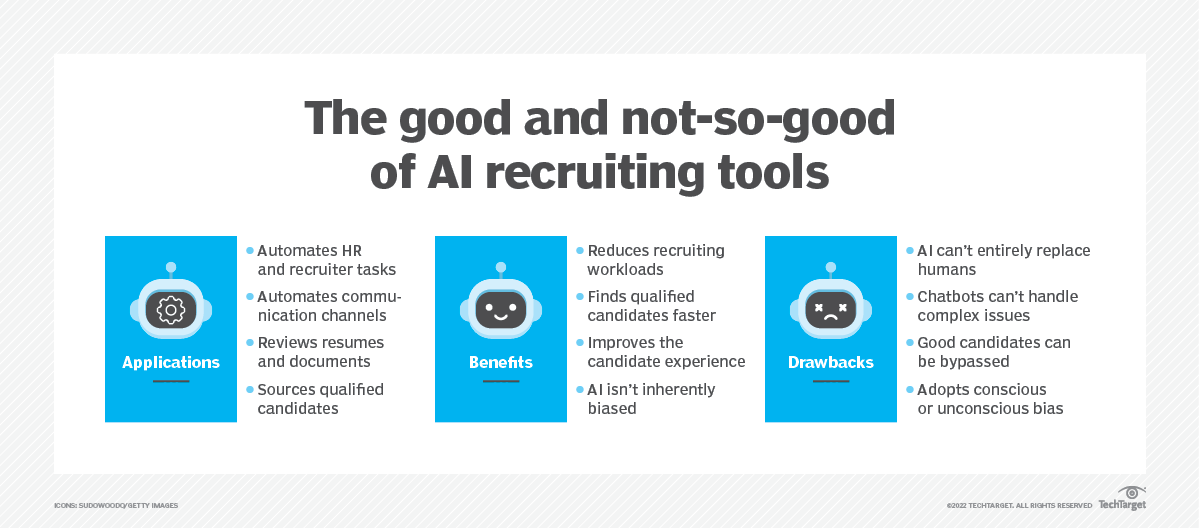Introduction to Automation Fears
Concerns regarding automation taking jobs have persisted for a long time. Now generative AI is the newest kind of technology to cause both concern and excitement.
Future Job Changes Driven by AI
AI is expected to assist people in performing their jobs in better ways in the future. However, this assistance may also result in some jobs being rendered unnecessary. For example, if in a few decades an AI platform can conduct half of the job tasks, it may not require as much human assistance to do ancillary work or for supervision.
AI Statistics within the Workforce
A McKinsey report, dated June 2023, predicted that generative AI could complete 60 to 70% of employees’ work tasks.
Jobs Already Disrupted by AI
AI is affecting jobs already today. In May 2023, 3,900 job cuts announced for the month were automated job cuts, according to Challenger, Gray & Christmas Inc. The Executive Chairman of OpenAI noted to Wired at its summit, that 80% of all US employment participate in tasks that generative AI could eliminate with 10% job task efficiency.
Examples of Writers Being Automated
One example was a writer for a technology startup who was let go without explanation. Months later, she found out through the company’s Slack channel that the company was using AI called “Olivia/ChatGPT” instead of her employment. Internal communications from her managers suggested to her that ChatGPT was financially less to continue using than hiring a writer, sufficiently communicating that AI was one factor in her firing.
What the Writers Guild of America is Doing
The Writers Guild of America went on strike, requesting more rules as well as higher pay and better payments from streaming services due to technology used.
Professions that AI is Most Likely to Impact
1. Administrative Jobs
Generic AI tools can handle complex admin work such as writing emails, analyzing reports, and scheduling meetings. The deployment of a product like Microsoft 365 Copilot could increase office worker productivity by automating routine tasks.
2. Content Writing
Generic AI tools like ChatGPT and Gemini (also called Gemini AI) can output human-like prose. This technology could impact content writing jobs, mainly those requiring less creativity or rigor or replicating a prompt. However, original content and specialized (professional) writing may become more sought after as generic AI-based content jobs fill the workforce.
3. Coding
AI tools can quickly and accurately produce code, which may impact coders producing large amounts of rudimentary coding. Coders doing a decent job with quality coding might use AI coding tools to improve productivity and workflow.
4. Customer Service Jobs
AI can help automate customer service functions, such as managing customer inquiries through chatbot text and analyzing customer sentiment data. AI isn’t going to completely replace human workers in customer service roles, however, customer service will change with AI managing many routine jobs, summarizing customer interactions, and managing translations.
5. Driving Jobs
Autonomous vehicles may affect driving jobs in rideshare hailing, personal driving, and commercial trucking. AI in the vehicle can help manage navigation, prevent accidents, and optimize routes which may change the driver work requirement designations.
6. Legal Jobs
AI is going to impact basic legal jobs. Some lawyer work now is supplemented or fully conducted by paralegals and legal assistants, and it’ll affect and automate the type of work paralegals do, including document reviews, legal research, and judicial process documentation, and independent AI models like GPT-4 have demonstrated they can do this work.
7. Marketing
AI is going to automate or minimize work creating customized content, and work to manage social media and analyze data, and AI accounts can use marketing campaign data to analyze SEO, thus able to create and manage optimized, tailored marketing efforts efficiently at a larger scale.
8. Manufacturing Jobs
Robotics and AI have become common in today’s manufacturing sector. Robot and AI fully automate work across a myriad of production tasks, including assembly, welding, and packaging. AI will also improve and will change quality control methods.

